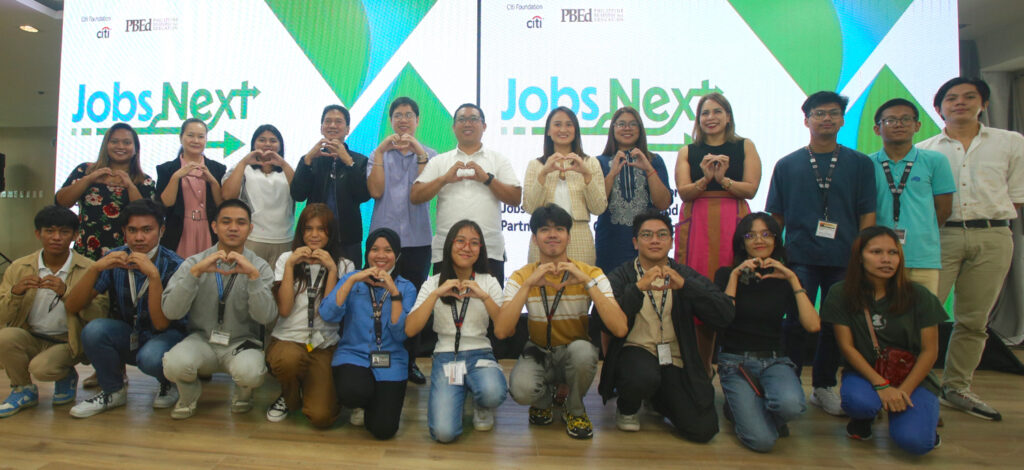JobsNext, an initiative of PBEd in partnership with Citi Foundation, and supported by the Quezon City government with an investment of P6-million, will provide various training programs to equip Quezon City residents aged 18 to 25 years old with the necessary skills for jobs in the future.
The training programs will be provided by its development partners from Microsoft, ASEAN Foundation, Adaptive Technology for Rehabilitation, Integration and Empowerment of Visually Impaired (ATRIEV), and Amazon to address the demands of emerging industries, including information and communications technology, data analytics, software development, cybersecurity, and web services.
To further enhance the employability of trainees, training programs from Accenture’s Skills to Succeed Academy will be provided to nurture their soft skills such as growth mindset, critical thinking, problem-solving, and adaptability, which are essential qualities for success in the workplace.

“We see a high demand for tech skills now more than ever,” Quezon City Mayor Joy Belmonte shared. “The JobsNext program will not only give hope to our youth but also empower them. We must ensure that they have access to necessary tools, skills, and knowledge needed to thrive in the workforce.”
“Quezon City is committed to investing in the development of our youth and we are committed to providing them with the competencies and skills required to address the changing demands of the future,” Belmonte added.
According to a 2022 joint report from the Asian Development Bank and LinkedIn titled “Digital Jobs and Digital Skills: A Shifting Landscape in Asia and the Pacific,” 64 percent of employers in the country said that demand for tech talent significantly increased in the past five years.
The same report showed that 6 of the 10 employees hired were required to have basic digital skills such as proficiency with collaboration tools or basic internet skills as companies implement automated workflows to increase the efficiency of their operations. In this kind of evolving work environment, it is critical for youth to enhance their digital credentials.
“Demand for digital skills continues to grow as technological advancements shape business models and transform workplaces. Our goal in PBEd is to equip Filipino youth with skills that will help them adapt and succeed in future jobs. This would not be possible without the support of the various local government units,” PBEd’s Executive Director Justine Raagas said during the partnership launch at the Quezon City Hall.
Through PBEd’s partnership with Quezon City, the LGU can improve the employability of the youth. The LGU’s Public Employment Service Office (PESO) will recruit potential JobsNext trainees and refer them to programs that match their preferred skills. To support the trainees, Quezon City will provide scholarship grants through its Youth Development Office.
JobsNext is already active in six LGUs and it has laid out steps to ensure its sustainability beyond its pilot run, including the capacity-building of six PESOs to enable them to better guide trainees from recruitment to deployment to accredited programs and institutions. JobsNext has also established six Local Future Skills Councils with its partner LGUs to oversee the overall implementation of the program in their respective areas.
These measures will allow the adopting LGUs, such as Quezon City, to take ownership and responsibility of the JobsNext program, and build on from its initial launch. Furthermore, JobsNext can build networks between future training completers and employers to address the growing demand for talent in technology.
“Our efforts have been focused on improving economic and employment opportunities for young Filipinos through our Pathways to Progress initiative. We believe in the talent and potential of the Filipino youth, and we want to empower them through this program and other similar initiatives to facilitate a better future for them,” Citi Philippines CEO Paul Favila said.

